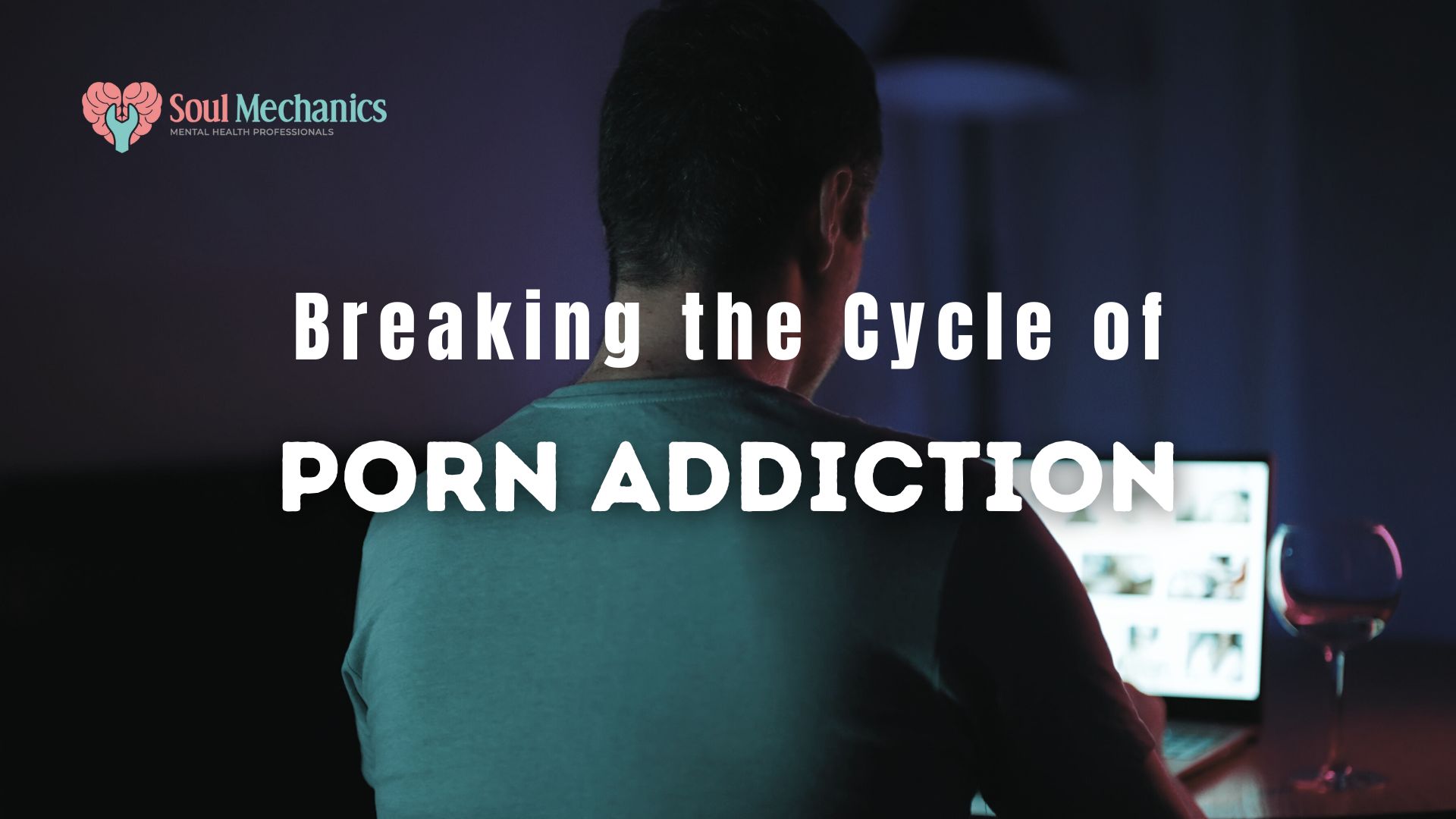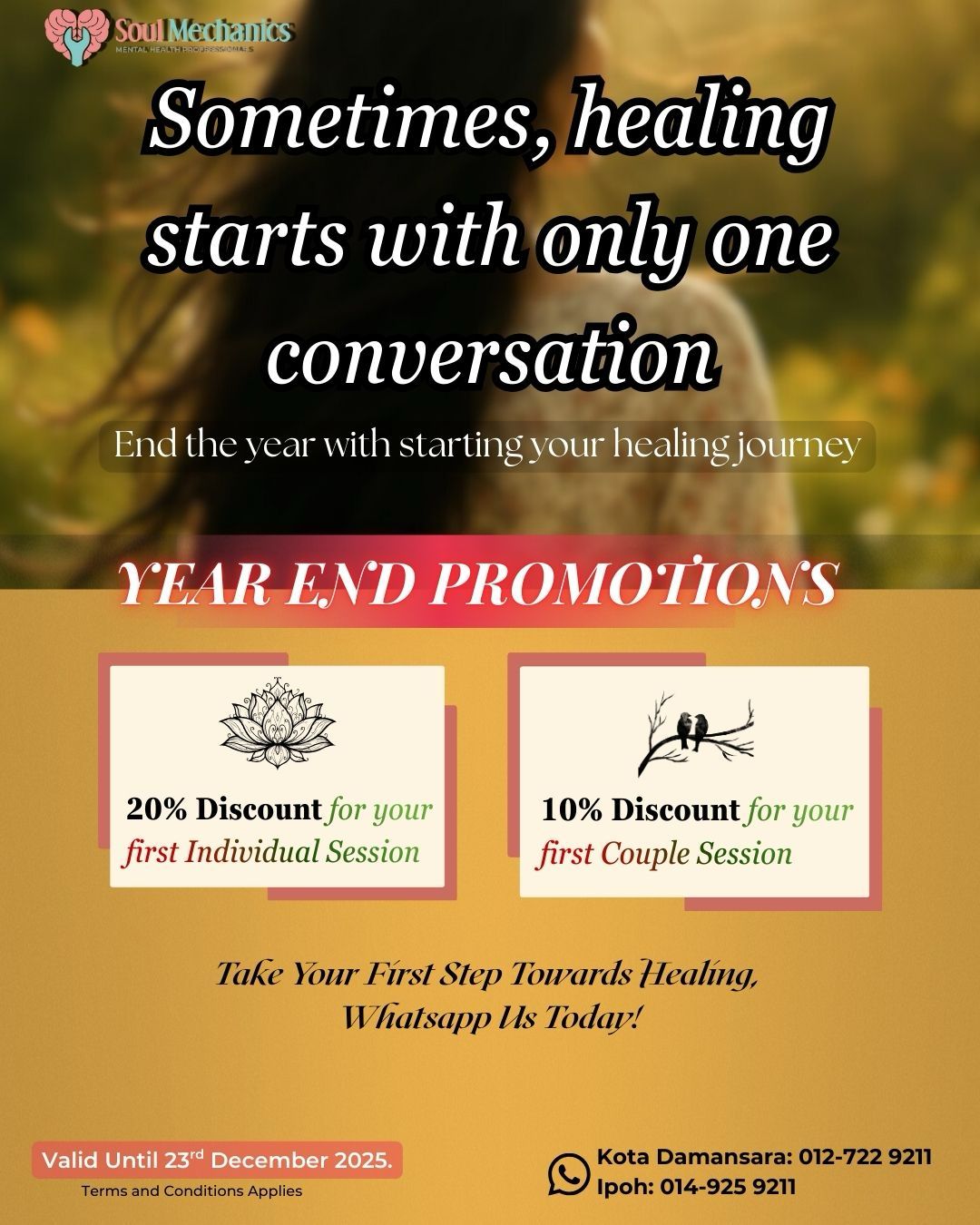Breaking the Cycle of Porn Addiction
Breaking the Cycle of Porn Addiction

Written By: Kelly Chan Jia Li, Clinical Psychologist (MAHPC(CP)00353)
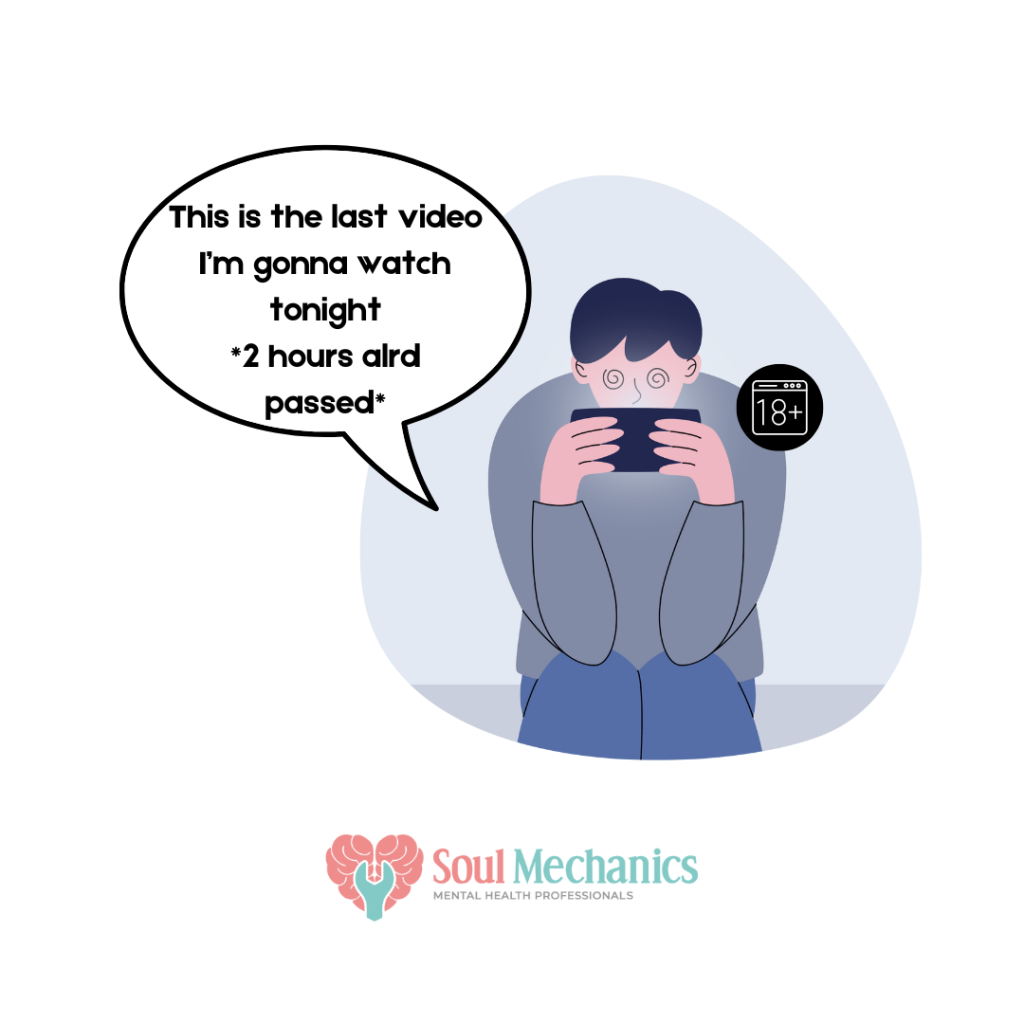
In today’s digital age, porn is more accessible than ever. Porn addiction is a struggle that many individuals face today, and it can feel overwhelming at times. With easy access to content online, it is no surprise that more individuals are finding themselves caught in the grip of compulsive behaviours around pornography. If you are reading this, you or someone you care about might be struggling with it too. Porn addiction, much like other behavioural addictions, can have negative effects on mental health, relationships, and overall well-being. The good news is that you can break this cycle of porn addiction.
Before that, What is Porn Addiction?
Porn addiction refers to a compulsive and uncontrollable need to view pornography, despite the harmful consequences that can negatively affect different areas of life, such as personal relationships, work performance, or emotional health. The brain’s reward system gets accustomed to the dopamine rush (the “feel-good” chemical) porn provides, making it harder to resist. Individuals struggling with porn addiction may feel trapped, finding it difficult to stop even though they want to. It is important to understand that this is not just about watching too much porn occasionally; it is about a pattern of behaviour where an individual feels driven to watch porn, even when it starts affecting their relationships, work, mental health, or daily life.
For example, imagine someone who is struggling to concentrate at work because they are constantly thinking about watching porn or someone who cannot enjoy intimacy with their partner because they are too focused on unrealistic sexual fantasies they have watched online. This is when it starts becoming a problem.
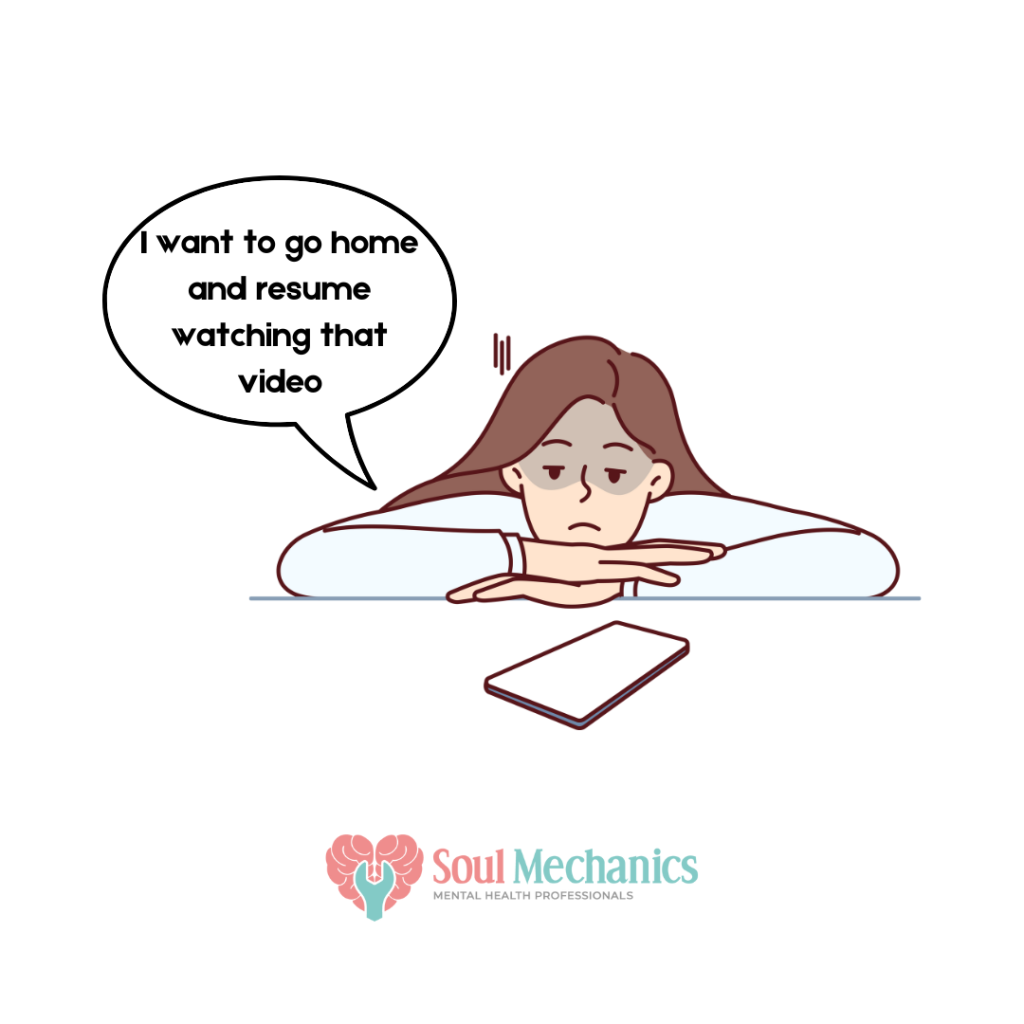
Why Is Porn Addiction Harmful?
While not everyone who watches porn will develop an addiction, frequent use can cause harm to individuals. For example:
Distorted views of sex and relationships
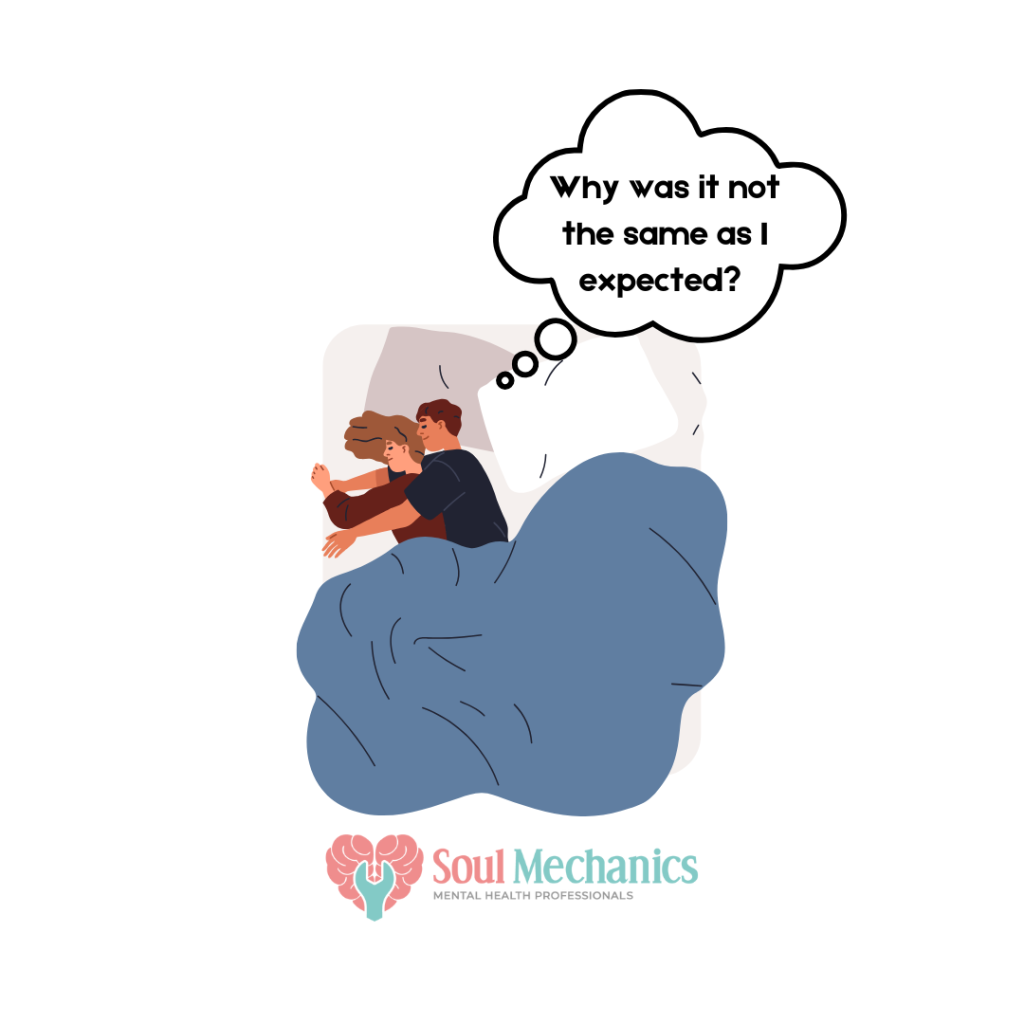
Overconsumption of pornography can create unrealistic expectations of relationships and intimacy, making it harder to connect with real-life partners. These unrealistic scenarios can also shape unhealthy attitudes toward sexual intimacy.
Relationship issues
Porn addiction can create distance between partners. Some may find it hard to connect with their loved ones emotionally or physically, as their expectations of intimacy may become distorted by what they see online.
Mental health struggles
Many who struggle with porn addiction feel ashamed, guilty or unworthy, which can worsen feelings of anxiety or depression. This can feed the cycle of addiction.
How to Break the Cycle?
Acknowledge the Problem
The first step in coping with porn addiction is acknowledging that it is an issue. It is easy to justify or downplay the severity of the addiction, but recognizing that porn addiction is affecting your life negatively allows you to start the recovery process. So, if you find yourself cancelling plans or staying up late regularly to watch porn, or if you feel anxious when you do not have access to it, it is a sign that your habits may be out of control.
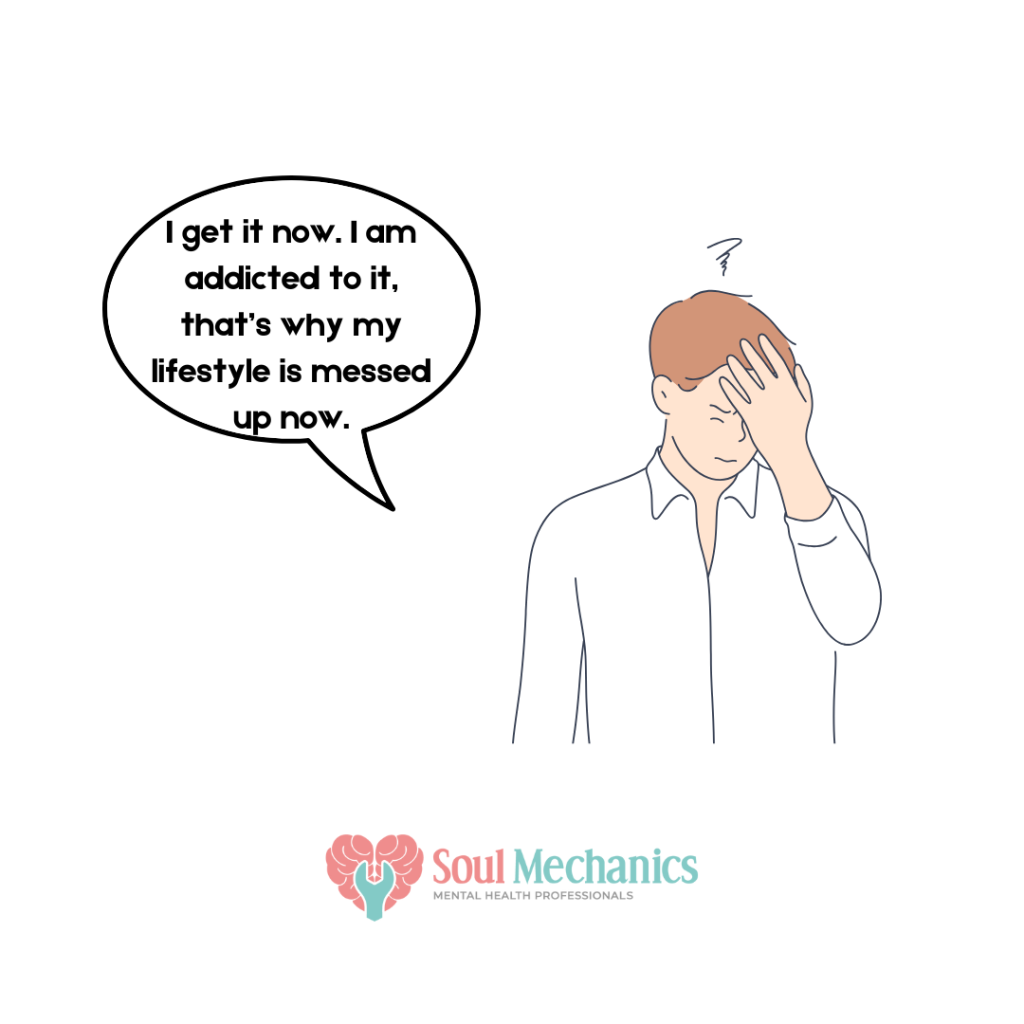
It is okay to admit to yourself that you have a problem. It is not about blaming yourself or feeling ashamed; it is about accepting that change is necessary for your well-being. This does not make you weak; it shows you are strong enough to seek change.
Identify Your Triggers
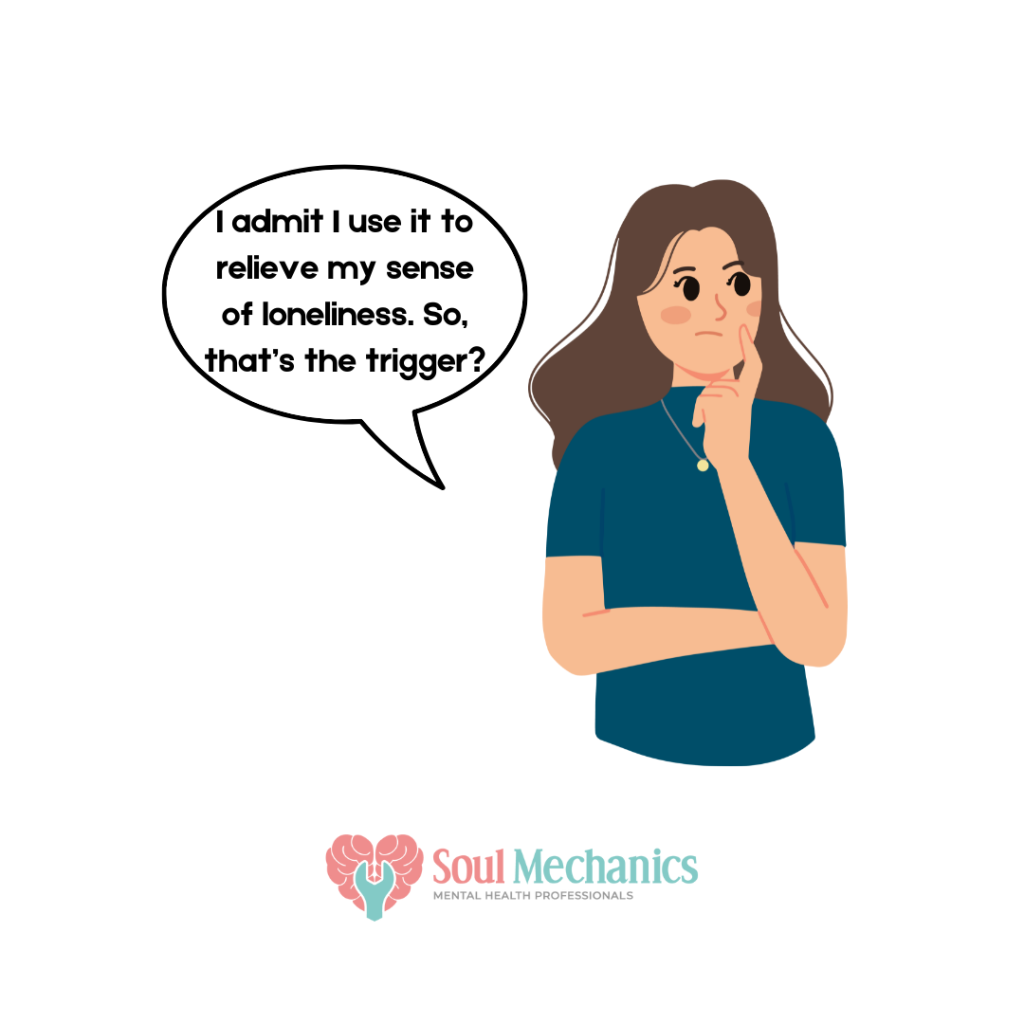
Porn addiction, like other addictions, often follows patterns. Hence, understanding what leads you to consume porn is key to breaking the habit. Do you notice specific situations or emotions that push you toward pornography? These can be your triggers. Once you identify your triggers, you can work on strategies to manage them before these triggers lead to watching porn. Examples of triggers can include:
- Boredom: When you have nothing to do, you might turn to porn as a way to pass the time or distraction.
- Stress: Some individuals use porn as a quick escape from stressful situations or emotions.
- Loneliness: Feeling disconnected can make porn seem like a substitute for real intimacy.
Create Healthy Habits
Recovery is not just about stopping the behaviour; it is also about replacing it with something healthier. You can start small and incorporate activities that promote your well-being. Find activities that engage you, uplift your mood, and serve as alternatives to porn consumption. Let’s say if boredom triggers your porn use, you could try filling that leisure time with a hobby like reading or taking up a sport. This can occupy your time and provide you with a sense of purpose and achievement.
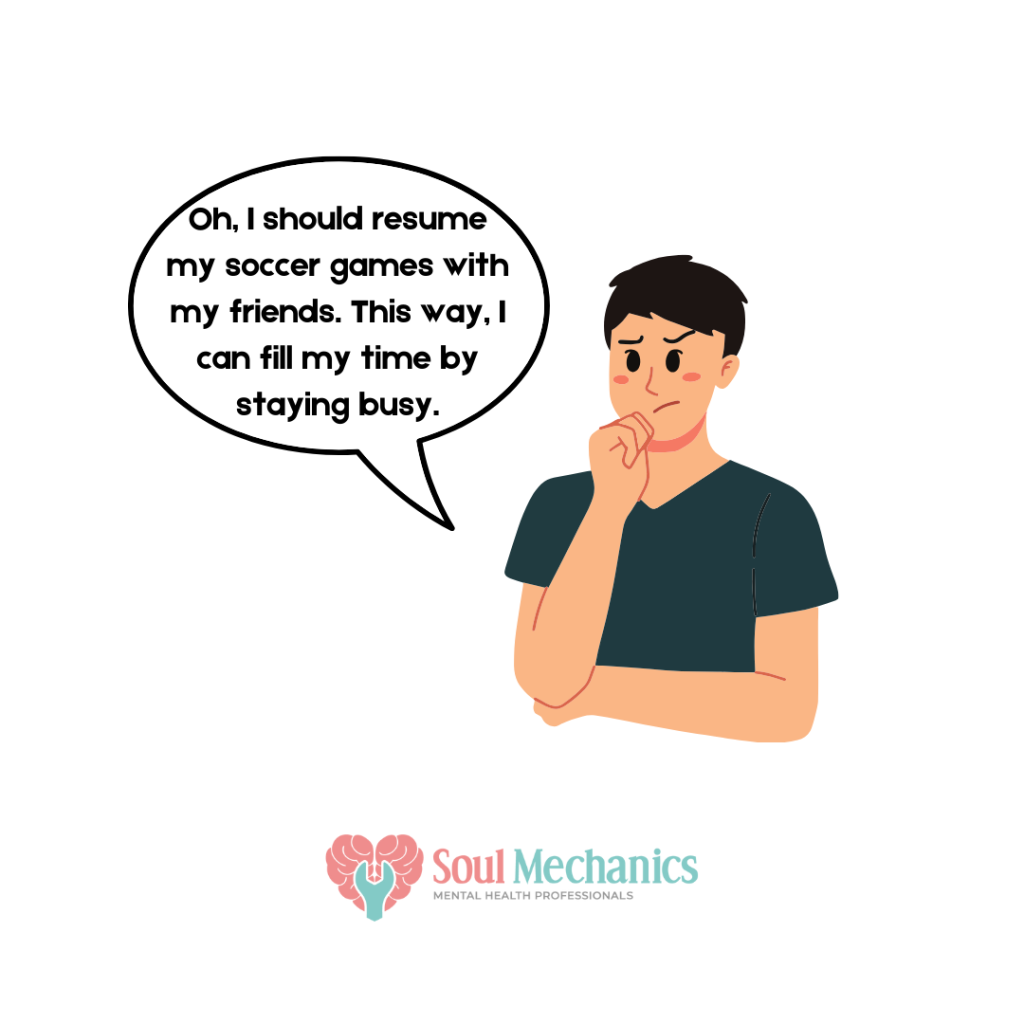
Set Boundaries to Limit Access
Creating boundaries can help reduce the likelihood of relapse. Start by identifying when and where you are most likely to view porn and make changes to limit those opportunities. Here are some tips:
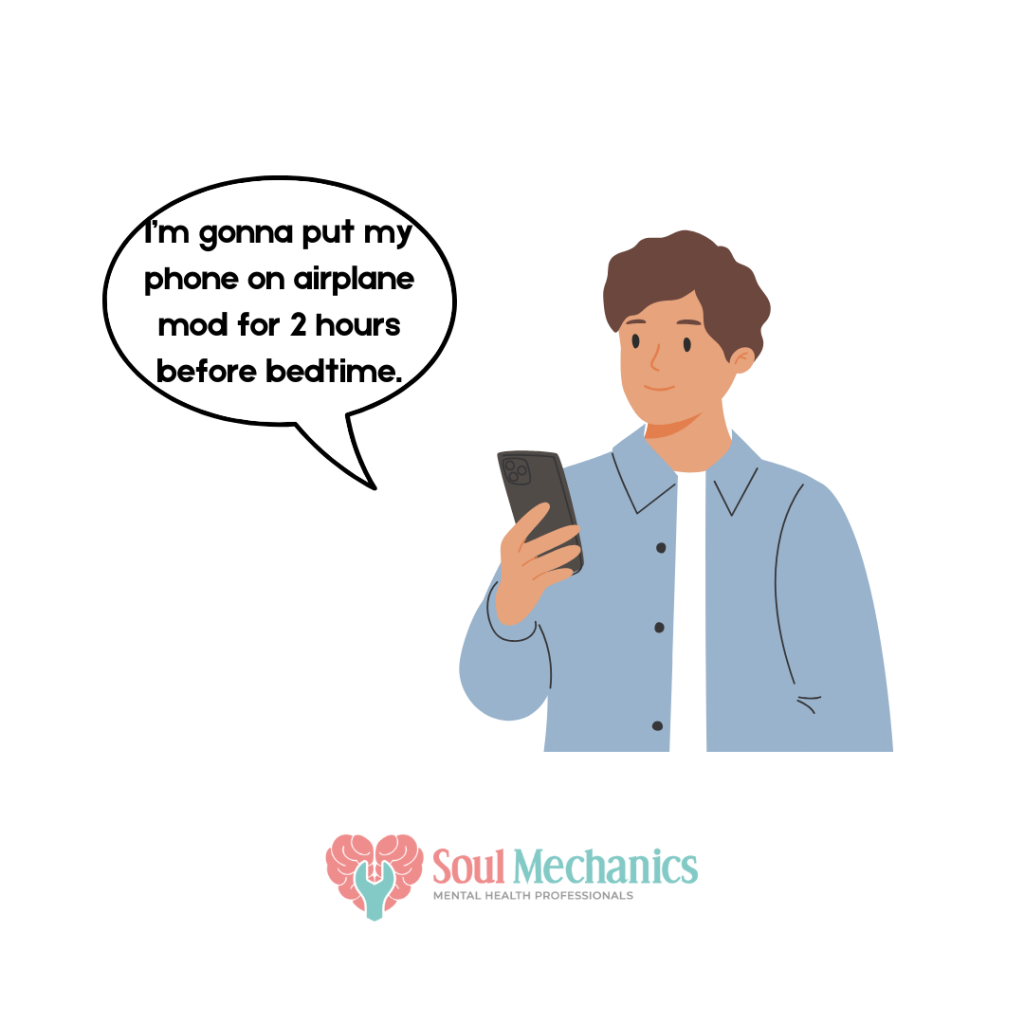
- Limit Internet access: Some apps or programs that block adult content on your devices, such as “Covenant Eyes”, can help block access to pornographic material. These tools act as a physical barrier, making it harder to give in to temptation.
- Limit screen time: Reducing the time spent online, especially on devices you commonly use to view porn, can decrease opportunities to relapse.
- Time management: Structure your day with activities and responsibilities to avoid periods of boredom or downtime, which can lead to cravings.
- Control your environment: If you typically watch porn when you are alone, try to change that dynamic by spending more time in shared spaces or around others.
Talk to Someone You Trust
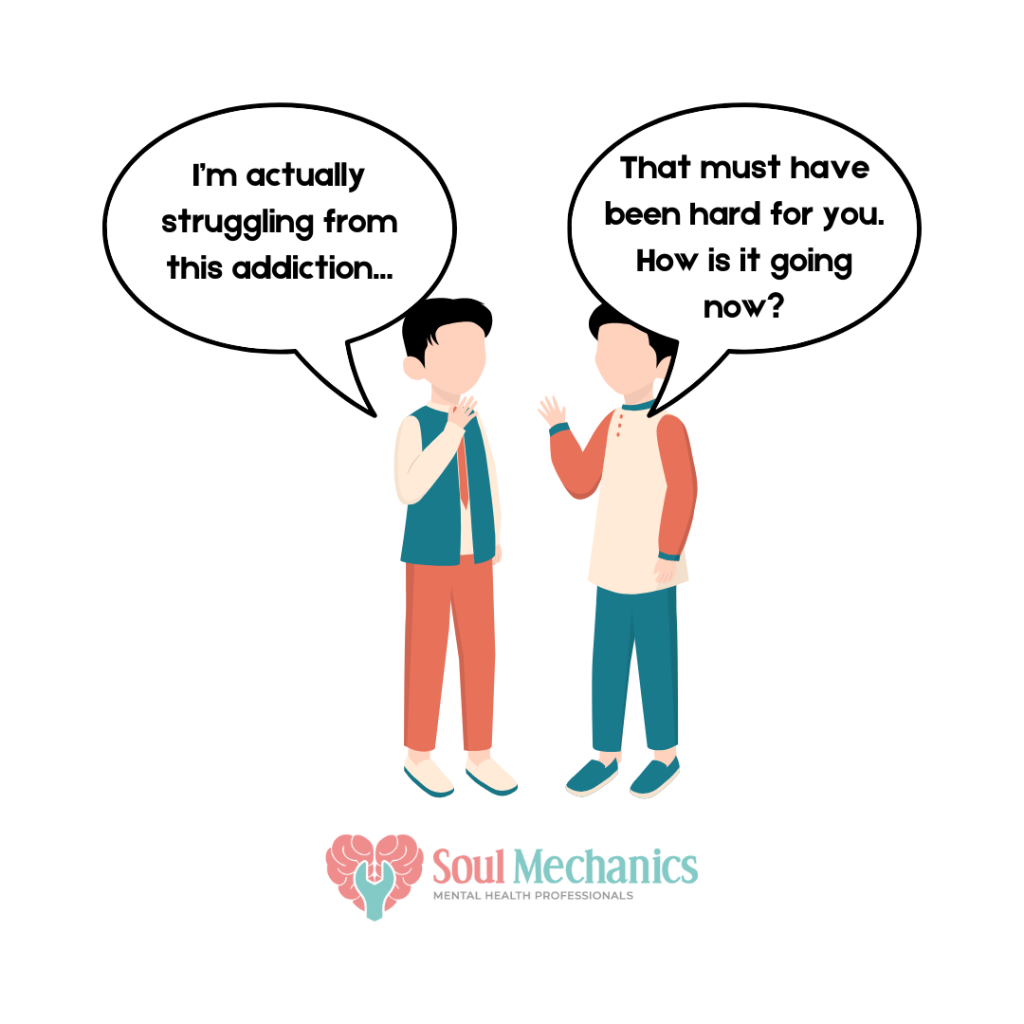
Overcoming addiction is emotionally challenging, and it is important to have people who can listen and encourage you when times get tough. Whether it is a friend, partner, or family member, sharing your experience helps reduce the shame that often comes with addiction. Additionally, an outside perspective can offer support and encouragement. Furthermore, telling someone about your goal to quit porn can make you feel accountable. Knowing someone is rooting for your success can motivate you to stay on track.
Seek Professional Help
For some, overcoming porn addiction on their own may be too difficult. If that is the case, seeking professional help from a mental health professional can provide the support and tools needed to break the cycle, as well as provide a safe space to explore the root causes of your addiction. Therapy can help you recognize and change the patterns that lead to addictive behaviours. Therapy also offers a safe space to talk openly about your addiction without judgment.
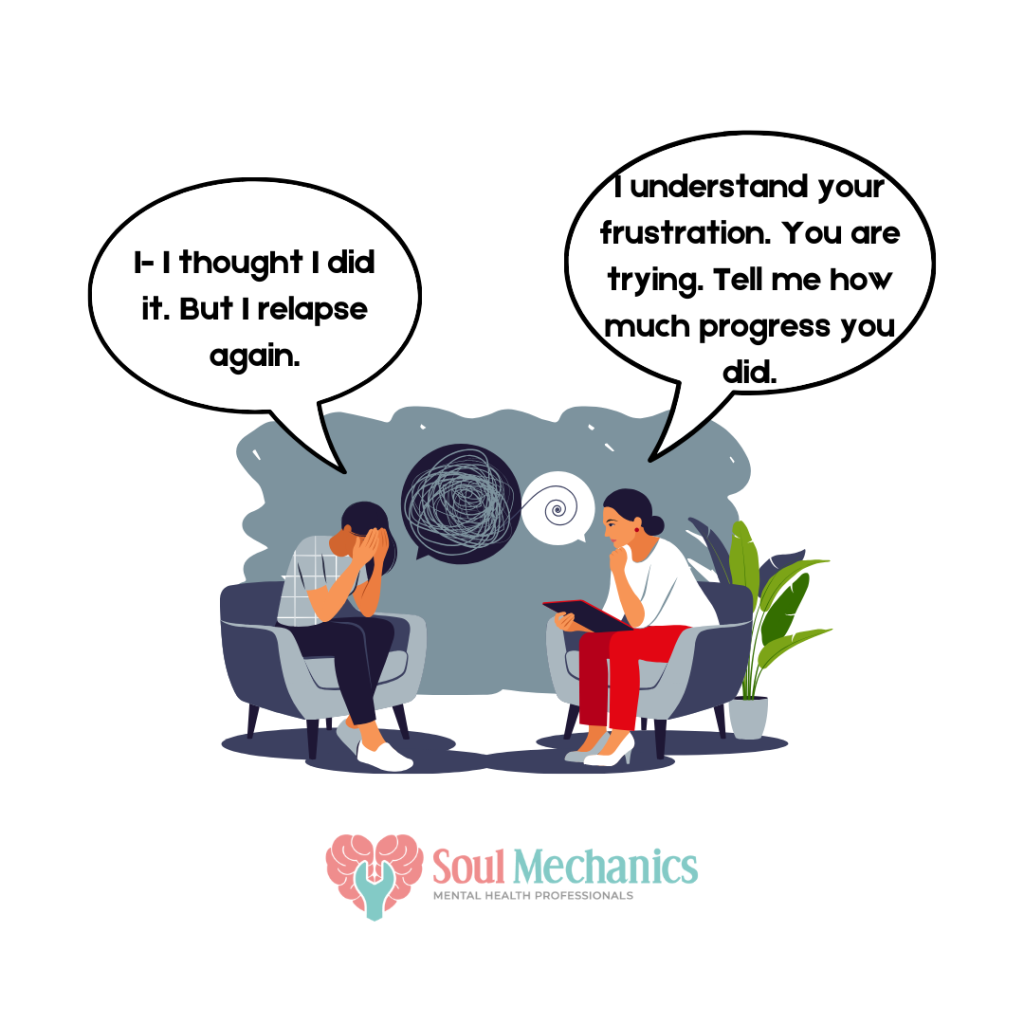
Reminder: If you are struggling to cope with porn addiction, please don't hesitate to reach out to us at Soul Mechanics KD or Soul Mechanics Ipoh. Remember, seeking help is not a sign of weakness but strength!
Join a Support Group
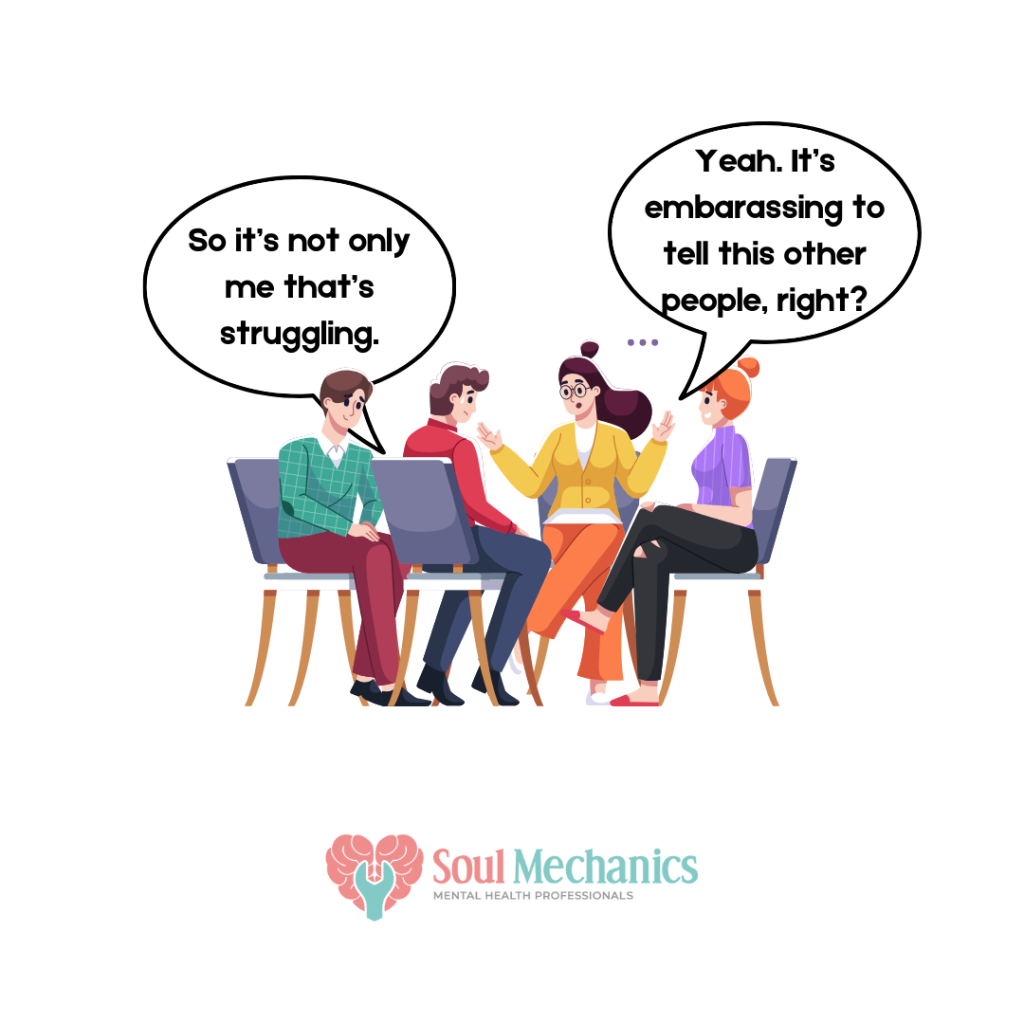
Connecting with others who are facing similar challenges can be incredibly helpful. Support groups (physical or virtual), online communities or forums can provide a judgment-free zone where you can share your experiences, listen to others, and build a support network. Their recovery stories and advice can make you feel less alone, and you may feel connected with people who understand what you are going through.
Practice Self-Compassion
It is normal to feel frustrated or disappointed when you are trying to quit, and relapse occurs. However, beating yourself up will only make the situation worse. Be kind to yourself during this process, and understand that setbacks do not define your progress.
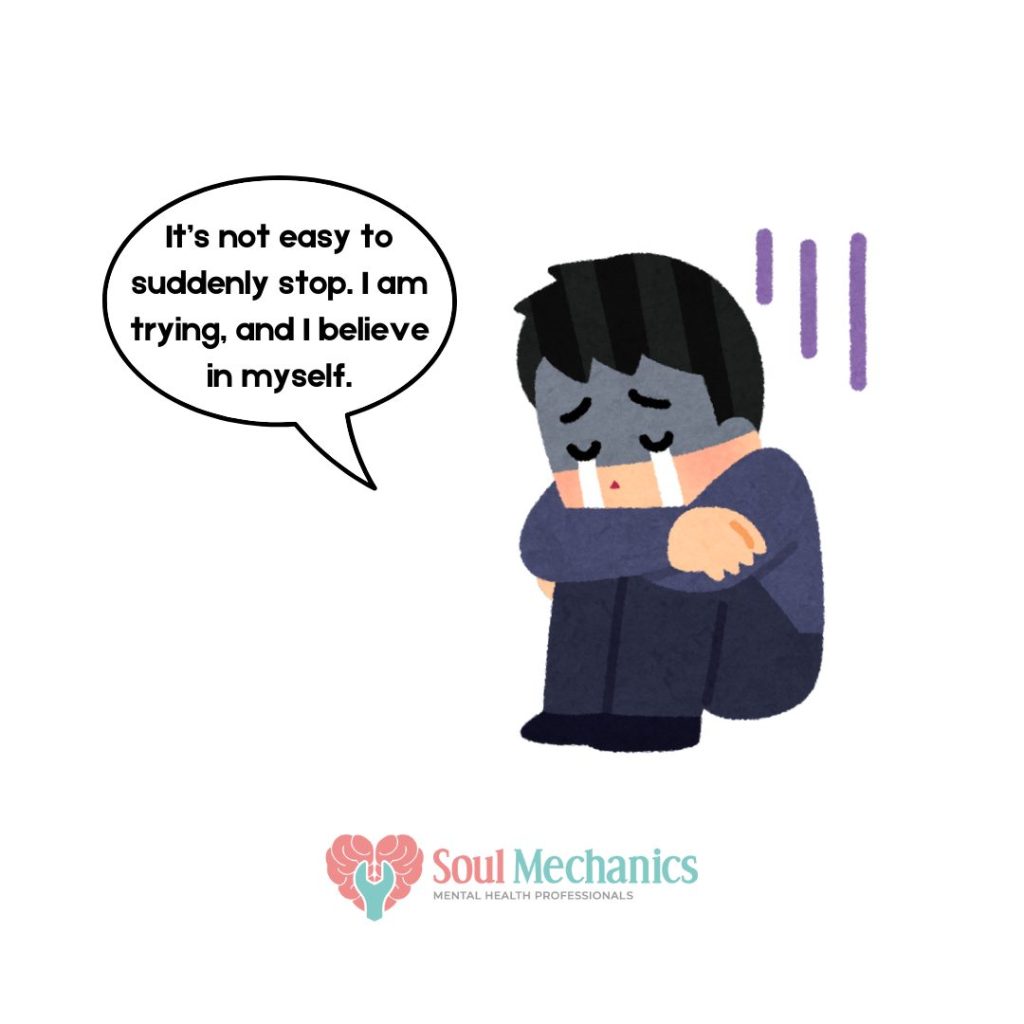
Recovery is a journey, and it is okay to take it one day at a time. It is okay to remind yourself that you are human and that overcoming addiction takes time. Instead of being hard on yourself, let’s take a step back, acknowledge that setbacks happen, and refocus on your goals. This shift in mindset can help you stay committed to your recovery. Focus on how far you have come, and celebrating the small wins can keep you motivated.
Visualize Your Future Without Porn
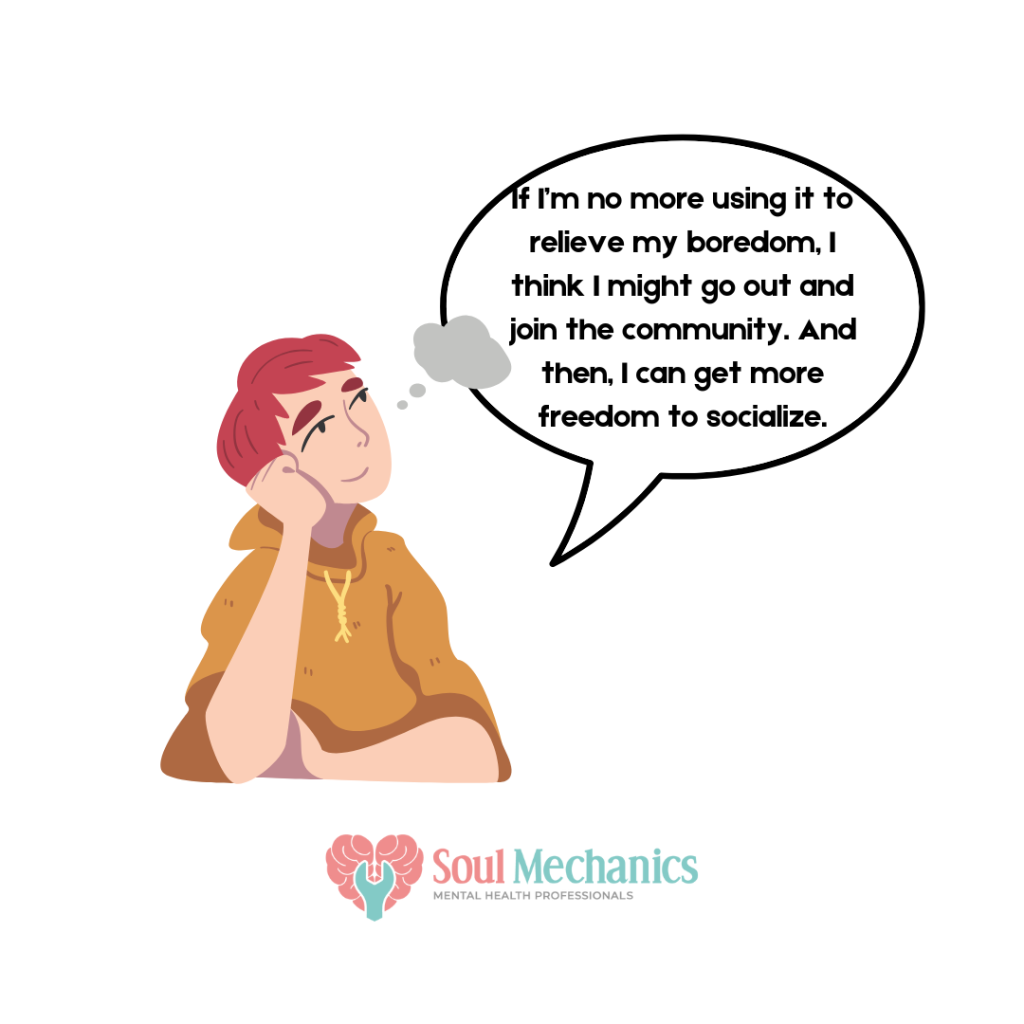
One powerful motivator is visualizing what your life will look like without the burden of addiction. Imagine how your relationships, mental health, and self-esteem will improve. Use this vision as motivation to keep pushing forward, even when the road gets tough. You can use a journal where you write about your goals for a porn-free life. You can imagine feeling more confident, being more present with your family or partner, and enjoying deeper emotional connections.
You Can Overcome Porn Addiction
Coping with porn addiction is not easy, but it is absolutely possible. By recognizing your triggers, developing healthy habits, setting boundaries, and seeking help when needed, you can break free from the cycle of addiction. Remember, each small step you take brings you closer to a healthier, happier life. You are not alone in this struggle, and with time and effort, you can reclaim control and start living more fully again. Keep moving forward, and remember that recovery is possible.
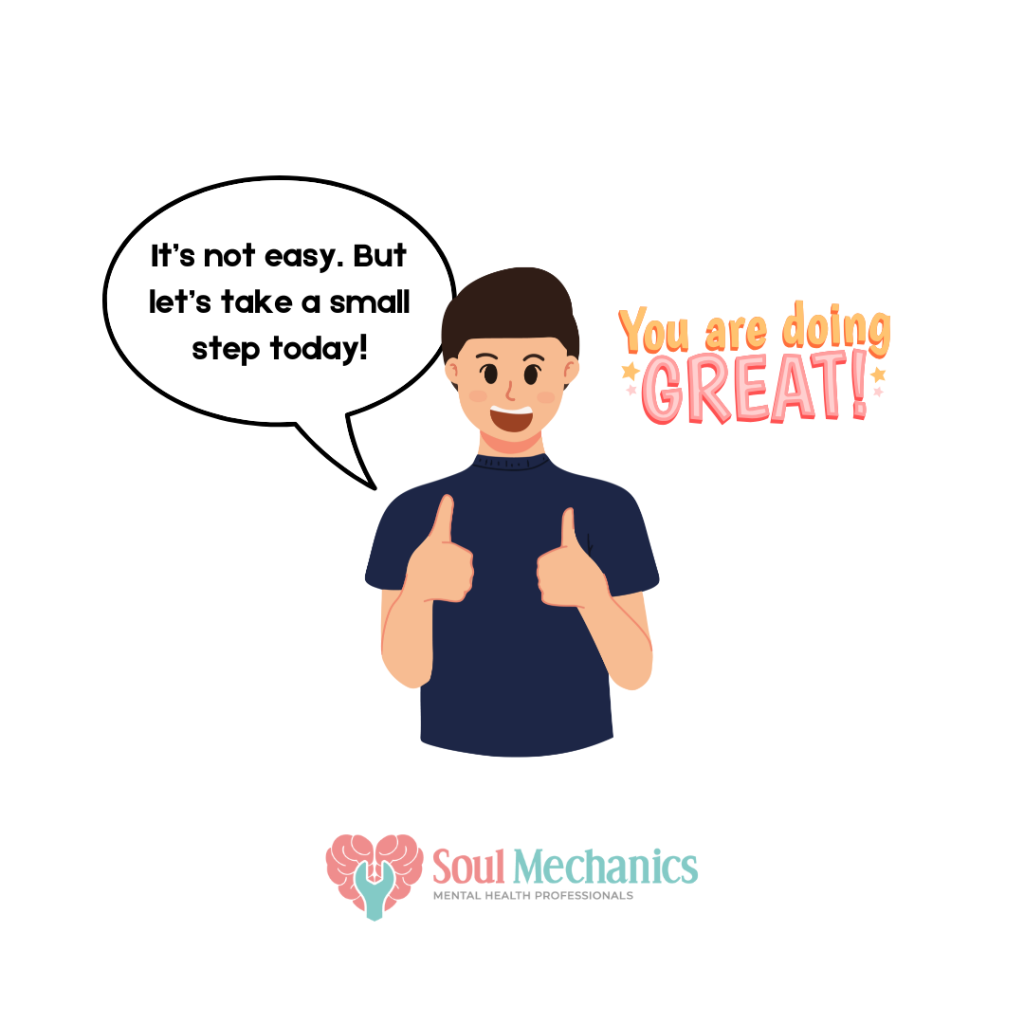
If you enjoyed reading this, why not broaden the horizon of knowledge by learning about "Is Porn Addiction a Coping Mechanism?"? You can read the blog here.
For more content related to mental health do follow us on our official Instagram.

